FILMMAKERS TO KNOW: EURIE CHUNG
Eurie Chung
Chung is a Peabody-award winning filmmaker with projects such as Plague at the Golden Gate for American Experience; Asian Americans for PBS. She also owns post-production facility Leading Flash Cuts with Walt Louie. She recently worked with Connie Lim aka artist MILCK to direct and produce her documentary “I Can’t Keep Quiet”. Chung speaks about her experiences as an Asian-American independent filmmaker, navigating the industry, and how other WOC can do so too.
BY: TIARA STARKS
SHEER: What inspired you to first pursue a career in documentary filmmaking?
Eurie Chung: Well, a very kind of secure circuitous story, but I didn't really intend on becoming a filmmaker. I was an English major, an undergrad, and I went to a school that didn't really have ethnic studies or I don't know, that kind of background. So I was interested in learning and just telling more Asian American stories. And then I ended up applying for and getting into UCLA for grad school in Asian American Studies. And a master's in Asian American Studies is not exactly the most practical degree, but I just felt like it was like something I needed for myself. And in that program, there is a thing kind of like a center for community documentation, oral history, types of things called a Center for Ethnocommunications. It was taught by one of the first generation documentary filmmakers, asian American filmmakers named Bob Nakamura. And he just kind of taught us, like, it wasn't film school, but it's sort of like guerrilla filmmaking. Like, okay, if all you have is this cheap mini DVD camera, because this was like 2002, this cheap mini DV camera, and you don't know how to light. Or we weren't taught, like, “This is how you set up lights, and this is how you set up all the actual part filmmaking kinds of things you would learn.
EC (CONT’D): It was just like, here's how you use available light. This is nice light. This is bad light. This is how you use the room to your advantage or try to shoot outside or whatever. So I just kind of did that program where I made a really short ten minute film for my master's thesis. That was about, at the time, an 84 year old grandma, who was an organizer for this progressive group in LA called the Bus Riders Union, who actually just tried to unionize transit writers as this collective, [with] working class group of people. She can't speak English and was basically learning Spanish and speaking in Korean to people and just trying to get people involved. This was sort of her second life as an 84 year old woman who had recently immigrated to the United States. So that just kind of set me on the path of being an Asian, like a filmmaker, I guess, more than anything. I didn't go to film school. It was more like, “Hey, these are really interesting stories, and I don't know who else is going to tell them or who is going to find them or be invested in them.”
SHEER: And just touching upon and hearing about your background, not only are you the producer of this film, you also take on double duty. You're the director. So since this is your directorial debut, how did you feel stepping into this new role?
EC: It was, I will say, at first, kind of awkward for me, just because it's not that I didn't feel like I deserved it, but it was, like, something that evolved and happened. The filmmaking process for this particular film just took longer than we kind of expected. And, you know, like, we initially, like, we did the filming in November, thinking we could have, like, a short piece ready in time for the fifth anniversary of the Women's March in 2022, and now we're in 2023. When it was finally completed, I think it was more of, like, a mental shift for me in being like, yes, I am the director. I am the person responsible for the way that this film came out. I'm used to being, like, the behind the scenes person, and on indie film, it's very scrappy. Right. So it's like, I do everything from picking up the gluten-free muffins in the morning and the coffee for the shoot. It's like, I do everything from that to being involved on set and just being like, oh, are we getting enough of this? Are we filming this? Did we get enough reactions here? It was definitely more of just a mental transition of being like, oh, I can own this role. Not that no one at any point said, oh, yeah, no, you shouldn't be the director. It wasn't that. It was more like me reconciling myself to the new role.
Pictured here: MILCK
at the Women’s March
in 2017
SHEER: You also mentioned the production process, and I know we have a subject matter which is kind of serious, but also just exploring Asian Americans and art and media. So when you were first speaking with Milk or Connie, how did the relationship start and how did it grow from the beginning of filming all the way to the end in post?
EU: Yeah, I think it was important to have an Asian American filmmaking team, like a director and a producer like Grace. Grace Lee was the person who initially had met Connie on a panel during the pandemic, and then they had explored just like, hey, is there a story here? Is there enough here that we can justify making this film, which is also part of this Asian American, like, oh, maybe my story isn't important enough. Who wants to hear this story? So I was working through that, and then I've been working with Grace for almost over ten years now, and so she just kind of brought me along and was like, hey, do you want to meet Connie? Can you let me know what you think after you have this conversation with Connie and Miley, who is the EP? The first conversation I had with her, with the both of them, I was basically like I'm not like, ugly, crying, sobbing, but like, the tears I got the feels from this feeling. I remember in the film when she says, oh, I was enough already. That feeling of am I enough? Do people care about the story? Is it important enough? And this is coming from someone who had a song that went literally around the world, right? If she can feel those feelings of kind of insecurity and not being enough, and am I a success? Am I following my voice? All of those questions that came up, I was like, oh, I feel those on a much smaller scale. But also, it was so kind of core to that nagging feeling you have. What am I doing in this world? And does my voice matter? So from that moment, I was like, oh, there's definitely something here. I think as the process continued, we were saying that the film probably took as long as it needed to take because it was, like, evolving trust. The story was evolving. It was Connie being very vulnerable and being comfortable with how vulnerable she was going to be on the big screen. I think it took time for her to even settle into being that open. Right. Because it was all in the interview, but how much that was initially in the first pass of the film versus what's in it now had evolved. The film expanded and then contracted and expanded and contracted, and we really worked hard at making sure that her words were relatable and her journey was relatable, even though it was so specific to what happened to her or what she went through.
“I think as the process continued, we were saying that the film probably took as long as it needed to take because it was, like, evolving trust. The story was evolving. It was Connie being very vulnerable and being comfortable with how vulnerable she was going to be on the big screen. I think it took time for her to even settle into being that open”
EC (CONT’D): So I'm not a survivor of domestic violence personally, but all of those feelings of insecurity and is this my fault? Are the things that happened to me my fault? Those were the things that resonated with me. I think as we kind of got to know each other, we had a head start because we were both Asian American women, but as the film evolved, I felt like, “Okay, I'm getting to know her and trust her beyond just this song, and she's getting to know me and trust me beyond the work that she's seen me do.” So that's why I think it is. Do we wish it was finished earlier? Probably. Did it take the time that it needed to take? Are we thankful that we were given the time and the space to explore all of those things and make this version of the film? Absolutely. Yeah.
SHEER: I know you have an extensive experience with working with Asian American themes, and so with this project, it was a little bit different. I wanted to ask you, when you were directing, did you ever encounter any challenges that were specific to this film compared to your other projects?
EC: Yeah, I think in the past, they haven't been as personal. Number one, film is visual, and you're trying to track a person's internal emotional journey right. That is not inherently film-able. Right. There are times where we're like, “Oh, is she talking too much? Is this just like wall-to-wall Connie explaining and talking?” Then once we started to use the different songs as sort of like a way to show this emotional journey that unlocked one piece, but we poured over lyrics even. There's one song near the end where she's wearing, like, a sparkly suit and she's playing at the piano called Metamorphosis, and that was, like, the last song that got replaced. We had a whole other song for a couple of months, and so it really was like, okay. These songs have to feel like they are absolutely correct because they're kind of like what the audience is feeling. With Connie, it was kind of the only way to kind of track an emotional journey without just, like, talk talking. So I think that was, like, a huge challenge as a director. I think the other thing was just you're dealing with Black Lives Matter.
EC (CONT’D): You're dealing with Stop API Hate, you're dealing with sexual violence, and it's like they're huge, big, heavy things, and it feels like, “Oh, shit, if you do it wrong, you could really do it wrong.” You know what I mean? I didn't ever want to feel like anyone who was African American or Black…I didn't want them to feel like we were ever pandering or you know what I mean? Like being inauthentic to an actual experience of struggle. I didn't want to diminish. We're also people of color, so it's like we wanted to make sure that if we bring this part of the story up, are we honoring it not just Connie's experiencing, but will it feel authentic to someone who was black, who had to live through this historical moment? Also, will they feel like this is, like, true allyship and self reflection? Or are they going to feel like, oh, you know what I'm saying? So I felt like those were moments that it was just like, we really worked hard to make sure it was an individual experience that felt like people could relate. So if it wasn't relatable, then it would be really hard right, for people to connect.
SHEER: I think there was, especially because you did say you're dealing with heavy topics, but there are moments where you can insert levity and feelings of hope. And I definitely got that out of the cut. Her journey is just so fascinating. I feel like there's some vulnerability and seeing it played out in the form of film, which is such a powerful medium, obviously, as a filmmaker, you know, it's really gratifying. I want to know how you feel now that essentially it's done and it's about to be screened. How does that feel now? It's going to be out there.
EC: We had our first public screening in early May at this Vital Voices conference in DC, which is essentially a women's conference, like, on Embassy Row. And I didn't know what to expect because it's not really a film festival. It was, like, sort of like women from around the world coming and participating. And I think there were just a lot of tears. And it was like, not that it was unexpected, but we were very emotional seeing it finished for the first time on the screen. Connie and I were, like, holding hands in the front when our EP was everyone was just sort of struck by, oh, now that we're actually seeing it done and not analyzing it, you know what I mean? Just, like, kind of actually immersed in watching it. That was like a whole new experience. With every festival we premiered at Asian American-specific film festivals in LA and San Francisco, and those had their own kind of community vibe. Right? It's not that it's just for Asian Americans, but it's like we want to acknowledge that we are Asian American women specifically. And so that community kind of had their own response.
[The documentary film “I Can’t Keep Quiet” has screened at film festivals nationwide including Geena Davis’ Bentonville Film Festival, MountainFilm Festival, the Center for Asian American Media Fest, and more.]
EC (CONT’D): This felt really heartfelt and heartwarming in the Q&A portion some of the festival screenings. Connie's been able to perform, like, a short set after the film, too. So there's another dimension of people experiencing her voice live. And I've been honest, not surprised, but a little bit overwhelmed by just kind of the depth of the response. Like, you're always a little nervous. Like, are people going to like this? Like, I'm just so, like, tunnel vision now. Like, I was like, Is it even any good anymore? You know, it's like, you can't you lose all perspective. But my community has been amazing. Just like Connie talks about when we were at San Francisco, one of the women said it's sort of like being in this immersive emotional experience and also this live you're also treated to a live show because of all the live music cues that we decided to use. It's been, overall, just a very warm hug of response from people and that's been nice.
SHEER: Yeah, I feel like that's what you want, especially with a film of this tone. I think you want to make sure people are responding authentically since you put so much of not just yourself as a director, but also Connie and just everyone involved. And it sounds like that was the initial response. So that's awesome for someone who is interested in watching the film. And I think this film can touch upon different audiences. So fans of the music, people might have experienced similar things to Connie or just people looking for more Asian American representation in documentaries. How would you tease the film to someone who's interested in watching?
EC: Well, I'm not going to tell them they're going to cry, but I think it's a little easier if people remember the song, right? It's like, “Oh, I remember that moment with the Pussy ads and there's more to that story.” So that's been a hook to some regard. What I will say is, I guess the main hook for me is like, you're going to hear great music, but you're also going to feel something. I think it is almost like going to the best concert. I like all of the music. I didn't put in anything that I didn't like, but it's like, “Oh, you're going to a concert, but then you're actually getting to know this artist, right?” It's sort of like the ultimate behind-the-scenes where it's not like gossip or tea. It's like, oh, you want to know where did that song come from? What inspired this? What is this person like as a person outside of a performer? I think you really get like a moving idea of who Connie Lim is as MILCK and what she brings to the music. So that's the biggest hook for me. That wasn't very succinct, like a log line [laughs].
SHEER: No, I think it works! I think especially for someone who might even has not ventured into watching documentaries, because I know some people have preferences, that definitely brings it together, though. From watching it and then hearing [about] it from the actual director, it definitely has some weight to it. In closing, do you have any advice for by POC filmmakers, aspiring, even established ones, specifically Asian American? What would you say to them?
EC: I would say that I'm not going to say it's easy. I do think you have to listen to your gut. And I think if you can meet the right people who can partner with you to help. I think filmmaking is 100% like a community effort. So it's like it's not just about one singular vision or like one interesting character or story, especially in documentary. I think it's like, you need those things to happen, but you also need to have a community of people who will support you even if it's one other person. Because you just can't do everything yourself in film. It's just not possible. So, like, try to try to find a community of people that you can make these stories with and be open and receptive in finding those people and being able to achieve what you want to do. Like I said, I didn't start out doing this. Honestly, I feel like if I was not an independent filmmaker and I kind of went out into the world, like trying to be a studio director or something, my life would be very different. I don't even know if I would have stayed in the business. It's working with the people like Grace over ten years. It's maintaining those relationships and being supported by people and knowing that on top of knowing that the story is important, that makes it worthwhile, because if you're just always being told no or being diminished, it's very hard. So the hope comes from community, I think.





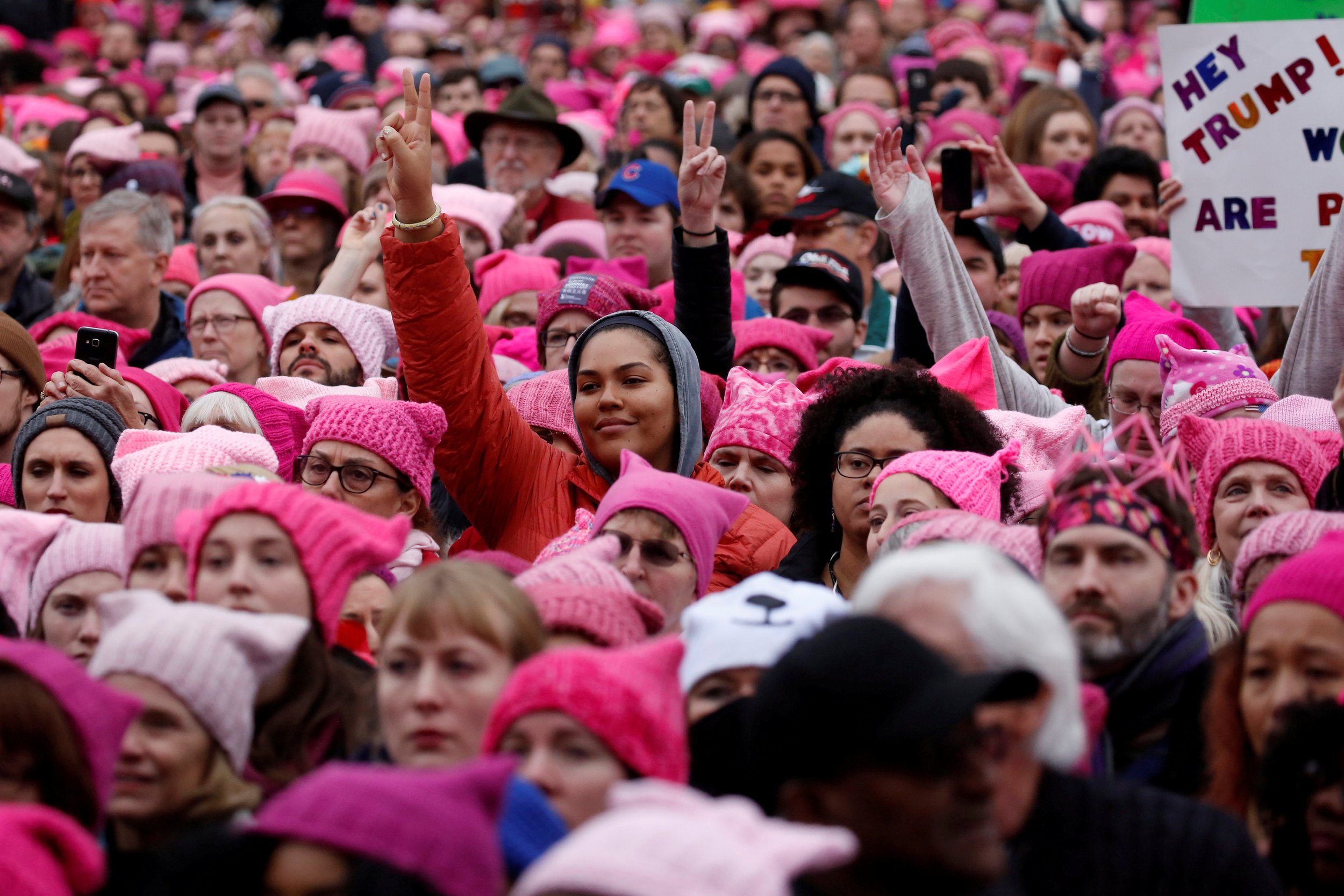
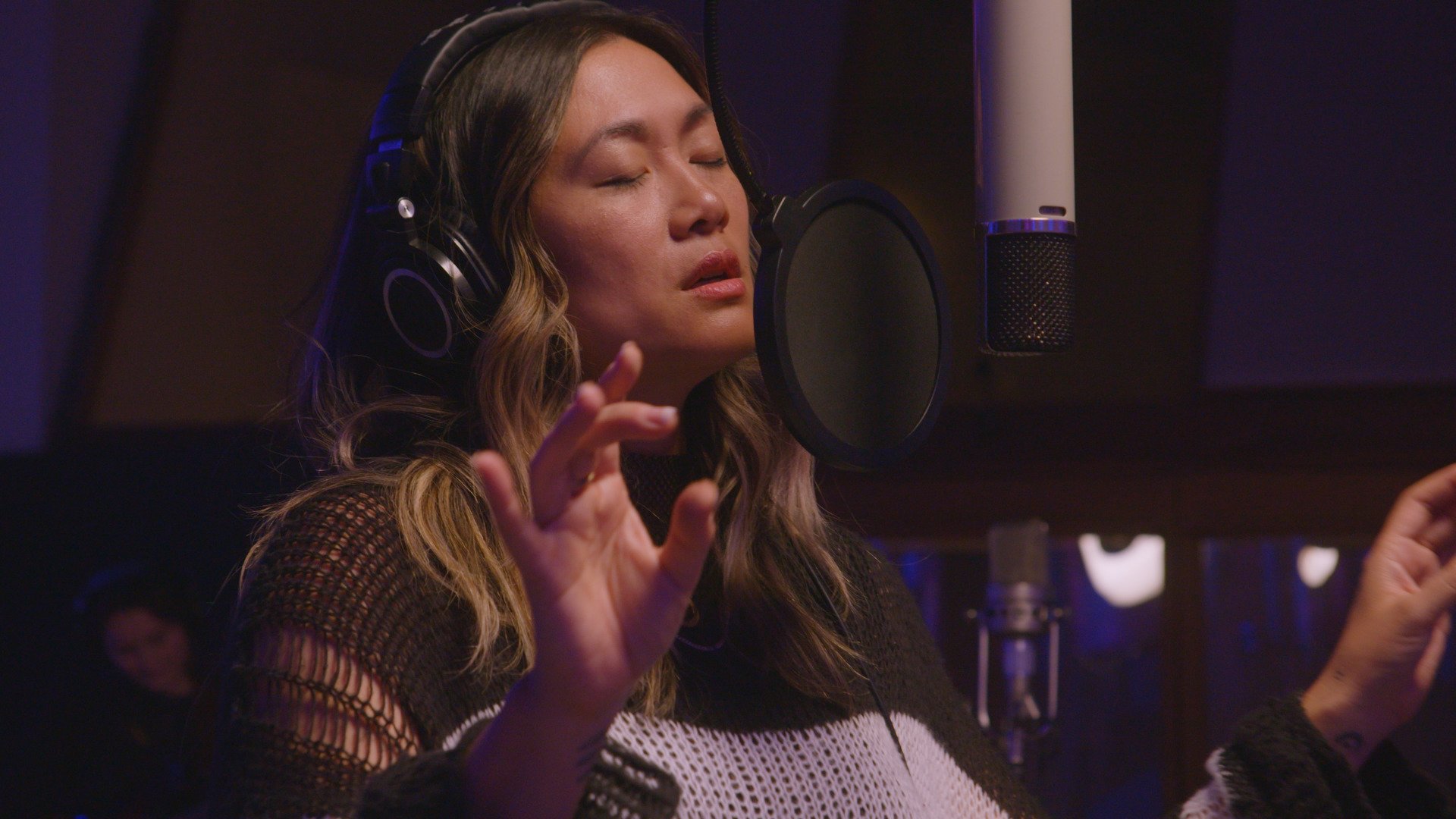
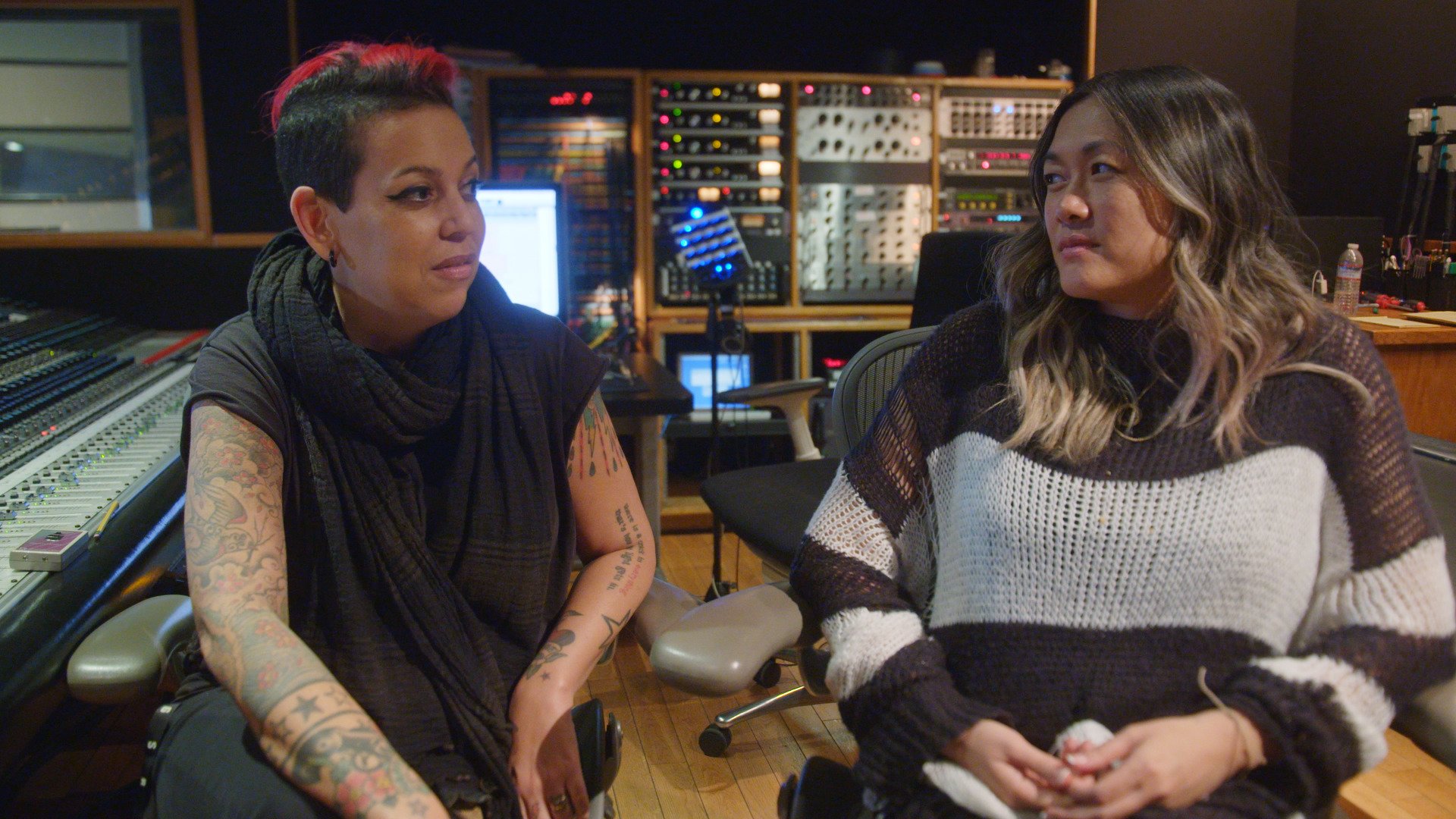
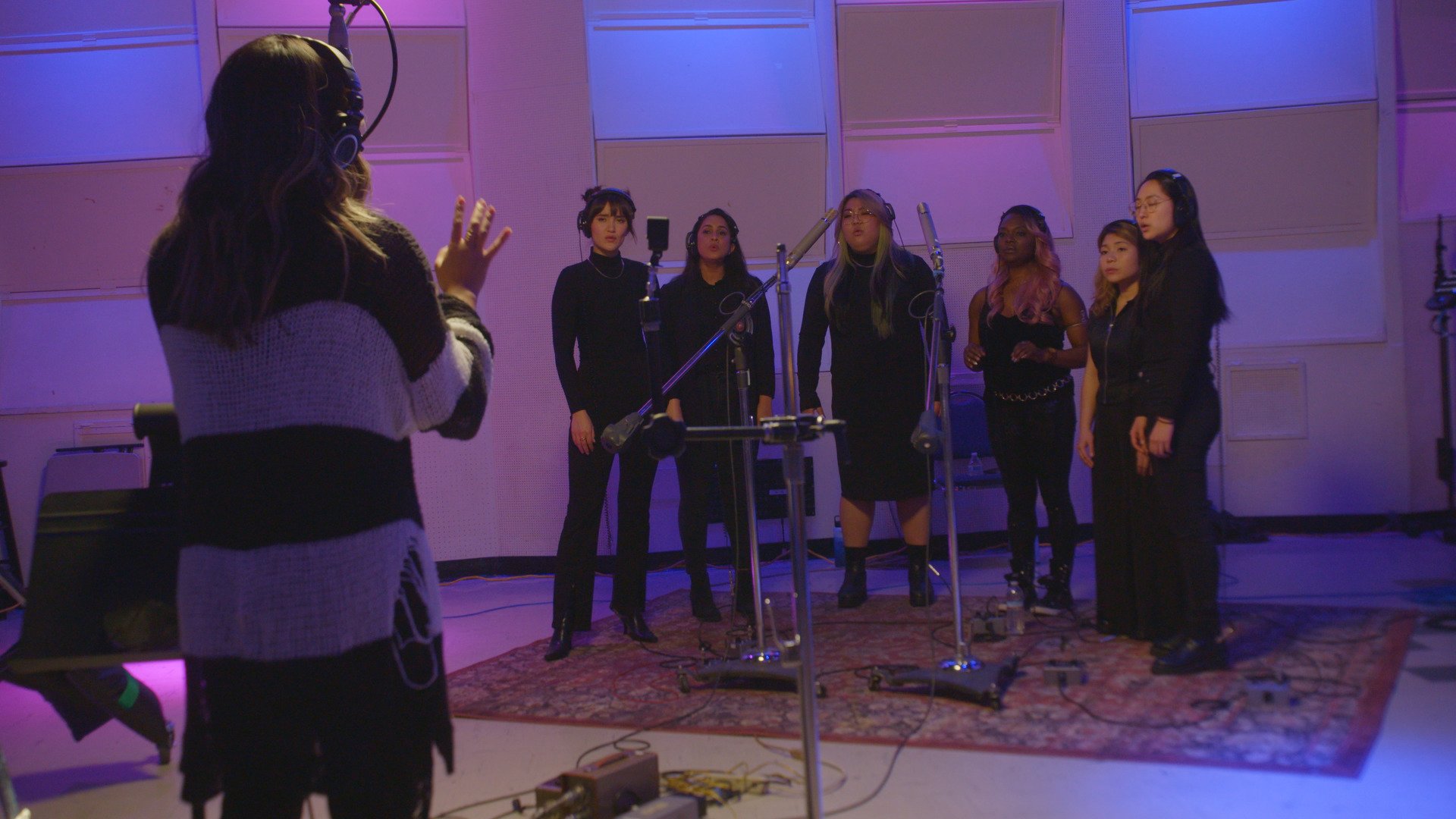



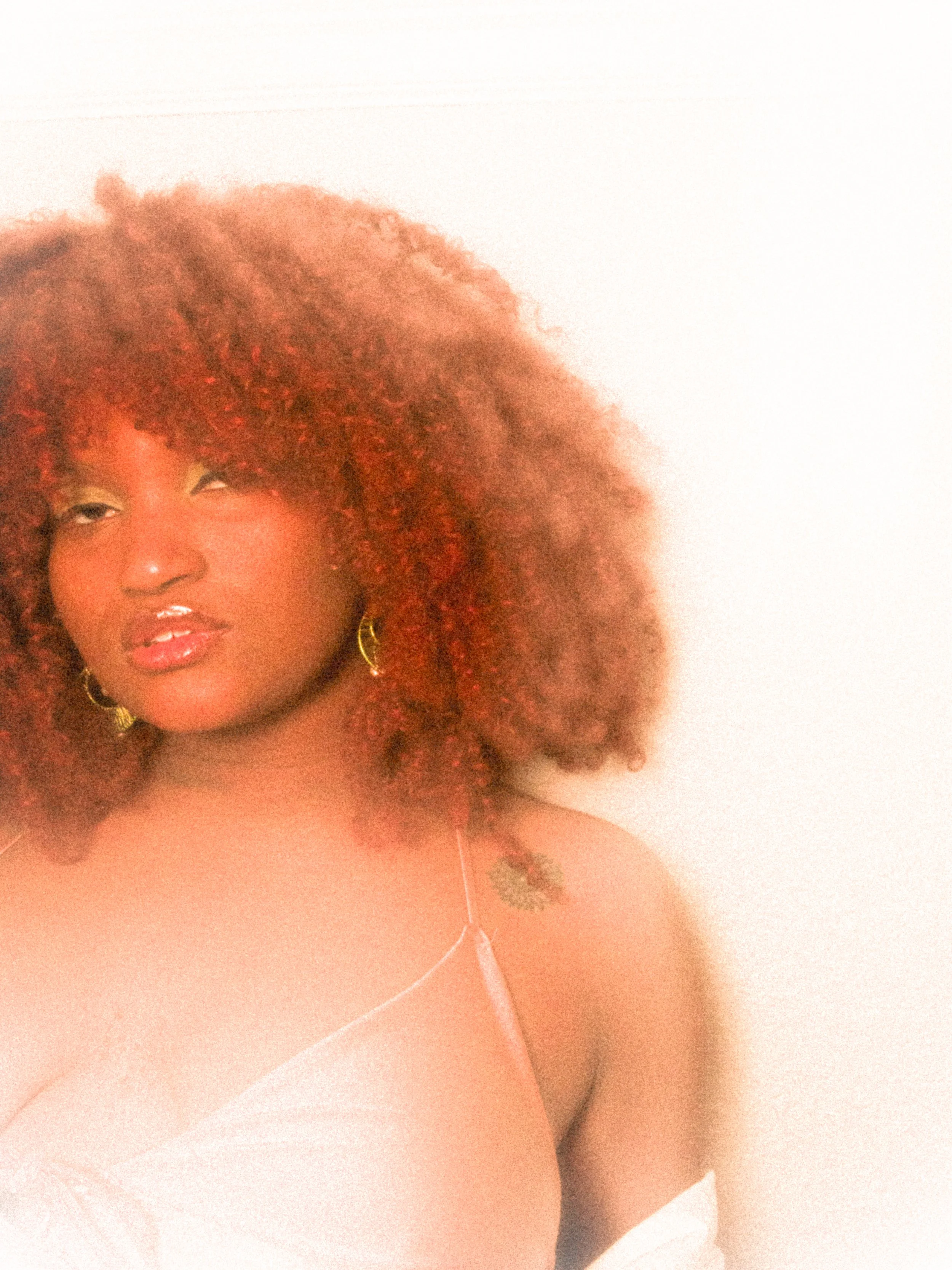

Photography by Nabila Wirakusumah
NYALLAH is known for blending elements of neo-soul, R&B, hip-hop, and West African rhythms while exploring themes of self-expansion, transformation, and love. With their latest project, R+B, recorded in phases spanning a near-death bike accident and an eye-opening trip to Costa Rica, R+B navigates relationships, desirability, and self-awareness from a black queer perspective. Through enchanting vocals and vulnerable lyrics, NYALLAH reminds us that desirability is not love and our liberation lies in de-centering ourselves and prioritizing collective care.